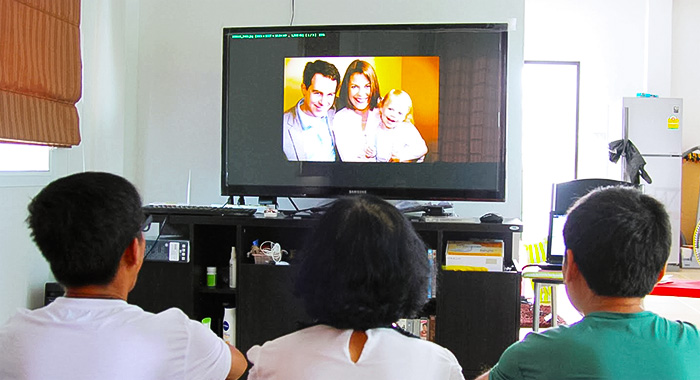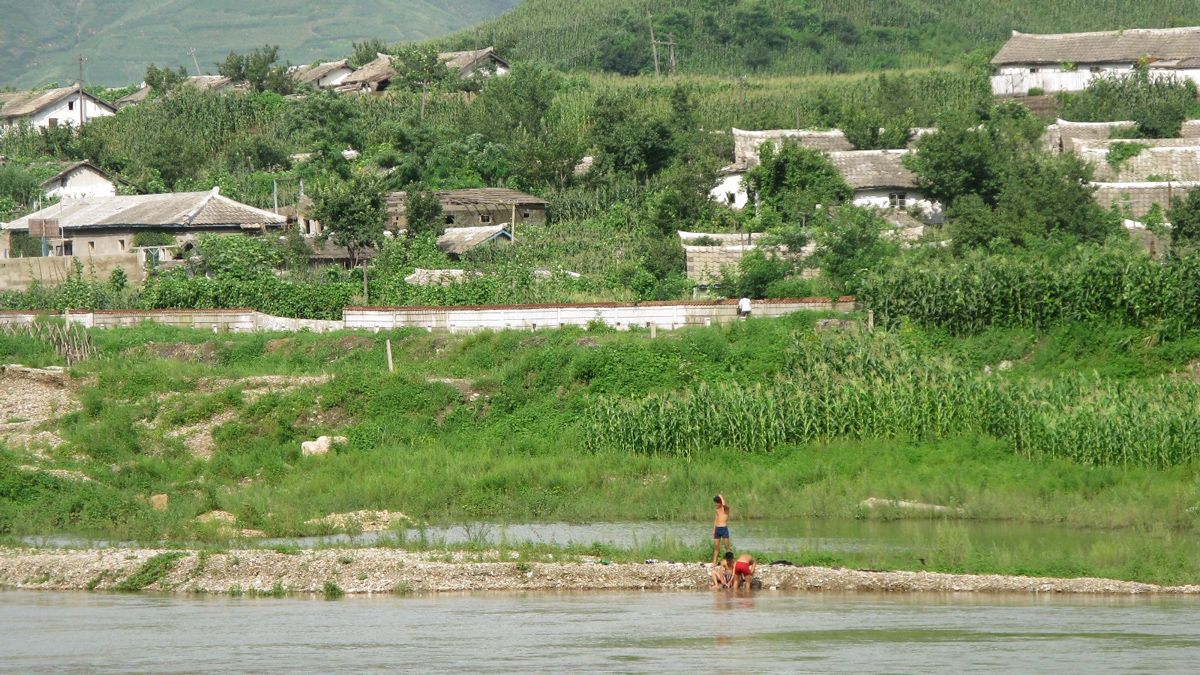5 Reasons Why Being a Field Coordinator Is Awesome
Being a field coordinator is a difficult, but incredibly rewarding job and we always come to treasure the unique and life-changing experiences we have during our time in the field. To give you some insight into what this job is like, here are the five best things about it.

Getting to know the refugees
This is by far the most amazing part of what we do. When refugees come under our care, we form strong bonds with them. Despite the vastly different stories and personalities, through our conversations, we see the common thread of remarkable perseverance and will to survive in each of the North Koreans we rescue. All of them have hopes for the future and many of the things we learn about our friends can be emotional, further strengthening our bond. We focus so much of our energy on providing food, clothes, shelter, time to rest for these refugees who have been through so much. When it comes time for them to leave, they do so with so much gratitude and strength. We believe getting to know them creates a strong relationship between the refugees and LiNK so that they feel comfortable reaching out for additional services after resettlement.

Seeing how refugees have changed post-resettlement
In Southeast Asia, the North Korean refugees we assist are still en route to their resettlement destination and are still not completely at peace. They are often nervous, anxious, and trying to process being in a world completely unfamiliar to them.
When we have the opportunity to travel to South Korea to meet with them once they have resettled, it’s always gives us a rush of anticipation because we get to see how they have changed. One particular memory we have from one of these trips is of visiting a noraebang (a Korean karaoke room) with resettled refugees. To watch them having fun was very moving. Sometimes, the simple fact that they look happy and safe is more than enough to make this job worth it.

Introducing refugees to the supporters who funded their rescues
The concept of a complete stranger donating several thousand dollars to a person in need they have never met is a completely foreign concept to many North Koreans. They are often astounded and moved that a person thousands of miles away would do something so selfless. With each refugee that comes through, we always make sure to introduce them to the person or group that helped fund their rescue, explaining who they are, where they’re from, how they found out about North Korea, and why they donated. It’s a moment when two worlds meet and the refugees often write thank you cards to donors to express their gratitude.

Observing how refugees interact with technology
It’s interesting to observe how sudden exposure to a world of technology affects a person who hasn’t grown up with it. One middle-aged refugee was hesitant about taking a photo with his head turned to the side because he thought the North Korean government had the technology to turn heads in photos and thus find out his identity. In contrast, we have also seen a North Korean child begging his mom as soon as the group arrived to turn on the TV so he could watch cartoons. The family had been well-off enough to be able to expose their son to foreign media at a young age even inside North Korea.
It’s a fascinating experience to show refugees Google Maps views of their hometowns. It’s just a simple bird's eye view, but the way their eyes light up and their fingers trace the roads to their homes, circle their schools, train stations, and marketplaces, is so visceral for them. It’s a contemplative moment for us—these people have left their country because of reasons that made life in North Korea miserable or unlivable. Despite that, North Korea is HOME and still filled with memories, both good and bad, of their childhood, family, and the simple pleasures of life—chatting with neighbors, holiday memories of gifts and special foods, and weddings.

Breaking the ice with delicious food
The first meal with every group is always quiet because we’re all meeting each other for the first time. So we always make it a point to ask about special foods the refugees had in North Korea or on the journey down as an icebreaker. Afterall, who doesn’t love talking about food? It’s true for North Koreans as well - everyone loves giving input on regional differences in preparing holiday meals, comparing market prices on fruit and produce, or complaining about the food not matching their tastes on their journey down.
We want to make sure the North Korean refugees are able to eat as much as they can to be strong enough for the remainder of their journey so we’ve made it a point to find out what foods fit best with their palates. For many of them, this journey is the first time they’ll have experience some tastes or seasonings (like cilantro) and it can come as a shock to them. It’s fun to think about what foods they would like—Yogurt? Chinese-style buns? Noodle soup? Fried rice with a fried egg on top is an all-around crowd pleaser.
Soon after the first meal, the refugees will have lively discussions about the delicious foods they ate in North Korea and when they were available. One mission, we brought out persimmons as dessert—it initiated a 20-minute discussion on the merits and differences of persimmons eaten in North Korea versus the ones bought in Southeast Asia.
Being a field coordinator is filled with many unique moments and this list summarizes just a few of them. And yes, though it is challenging at times, it’s the refugees who we are most excited to serve. We love sharing our experiences with them. No one group or mission is the same and that keeps our job exciting, varied, and dynamic.
Want to be our team in the field? Apply to be our next field coordinator!
Apply Now!
Lost Stories from North Korea — A Life With No Exit
By Jane
Jane is a participant of LiNK’s Intensive English Program (LIEP), designed to build the capacity of North Korean English speakers at the intermediate level. In partnership with the British Council, LIEP aims to cultivate participants’ communication and critical thinking skills in English. LIEP is complementary to our broader LiNK English Language Program (LELP), which supports speakers of all proficiency levels.

When I was young, we lived in the countryside. Like the other kids, I had to help my mom with farming. It was hard work. From spring to fall, everything was difficult. Carrying a heavy load on my back, climbing up the mountain, my hands covered in blisters from using farming tools—I would often return home late, completely exhausted.
Our field was located at the top of a high mountain. From there, I could look down and see the Amnok River flowing, with a railway track stretching beside it. One spring day when I was around 13, I was resting at the top of the mountain, looking down at the train passing by below.
Watching it move slowly like a caterpillar, I thought to myself, "I want to get on that train and go somewhere far away." That was the first time I dreamed of escaping. We were living in a prison with no exit, no hope.
Eventually, I managed to escape from that life in that prison. But my mother must have continued climbing that mountain and working in that field for many more years. Perhaps, during her moments of rest, she would look down at the river and the railroad. Perhaps, she thought about me, who had left for a place far away.
Now, I am living well in South Korea, as a mother of one myself. I carry dreams and hope in my heart. But not everyone has been as fortunate as I have in finding a way out.
I have a friend, a North Korean defector now living in the United States, who once shared a story that moved me to tears. A few years ago, she fled North Korea with her two young daughters and eventually made her way to America. She attempted to reach South Korea twice. The first time, she set out with her daughters, ages seven and eleven. They wandered for days through the vast Baekdudaegan mountains. When their water ran out, she dug into the earth with her bare hands, squeezing out a few drops to moisten their mouths.
Along the way, they came across the bodies of two people, sitting with their backs leaning against each other in the middle of a field. From their clothes, she could tell they were North Koreans, their bodies already beginning to decompose. Fearing that she and her daughters might meet the same fate, she decided to turn back and return to North Korea.
As I listened to her story, I couldn’t hold back my tears. Who were those two souls lost in the mountains? Where had they been trying to go? How long had they wandered? They might have been so exhausted that after sitting back to back, they couldn’t get up again. What thoughts filled their minds in their final moments?
That’s why I want to be a writer—to share these stories with the world.
For the people in North Korea who still dream of breaking free from a life with no exit, and for the nameless souls who never made it to freedom.
-
Opportunities like LiNK’s Intensive English Program (LIEP) are helping North Koreans find their voice, reach their goals, and lead change on this issue. Your support can help us continue to make an impact in the lives of North Korean refugees, like Jane.
Give Today




